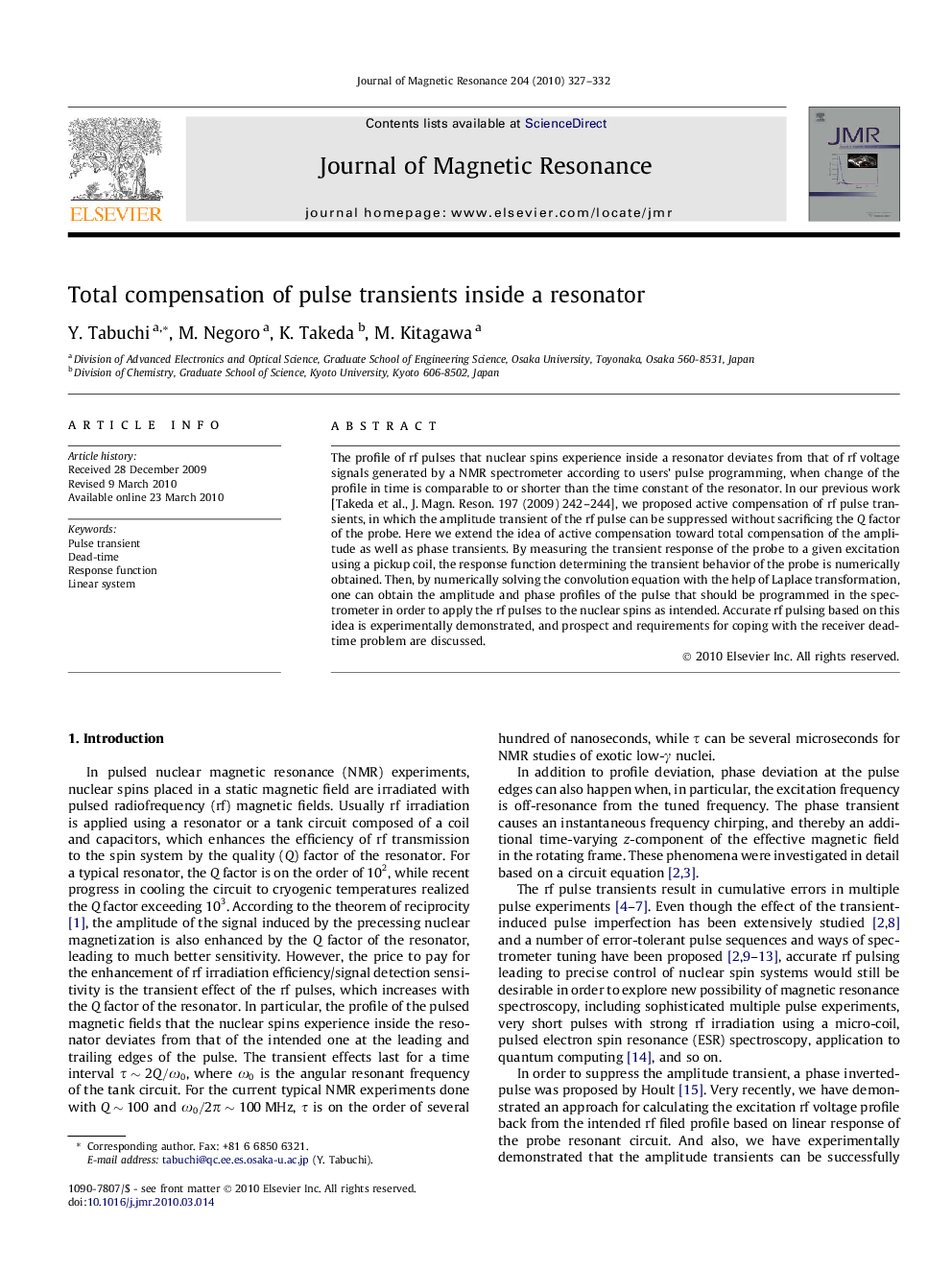| Article ID | Journal | Published Year | Pages | File Type |
|---|---|---|---|---|
| 5406635 | Journal of Magnetic Resonance | 2010 | 6 Pages |
Abstract
The profile of rf pulses that nuclear spins experience inside a resonator deviates from that of rf voltage signals generated by a NMR spectrometer according to users' pulse programming, when change of the profile in time is comparable to or shorter than the time constant of the resonator. In our previous work [Takeda et al., J. Magn. Reson. 197 (2009) 242-244], we proposed active compensation of rf pulse transients, in which the amplitude transient of the rf pulse can be suppressed without sacrificing the Q factor of the probe. Here we extend the idea of active compensation toward total compensation of the amplitude as well as phase transients. By measuring the transient response of the probe to a given excitation using a pickup coil, the response function determining the transient behavior of the probe is numerically obtained. Then, by numerically solving the convolution equation with the help of Laplace transformation, one can obtain the amplitude and phase profiles of the pulse that should be programmed in the spectrometer in order to apply the rf pulses to the nuclear spins as intended. Accurate rf pulsing based on this idea is experimentally demonstrated, and prospect and requirements for coping with the receiver dead-time problem are discussed.
Related Topics
Physical Sciences and Engineering
Chemistry
Physical and Theoretical Chemistry
Authors
Y. Tabuchi, M. Negoro, K. Takeda, M. Kitagawa,
